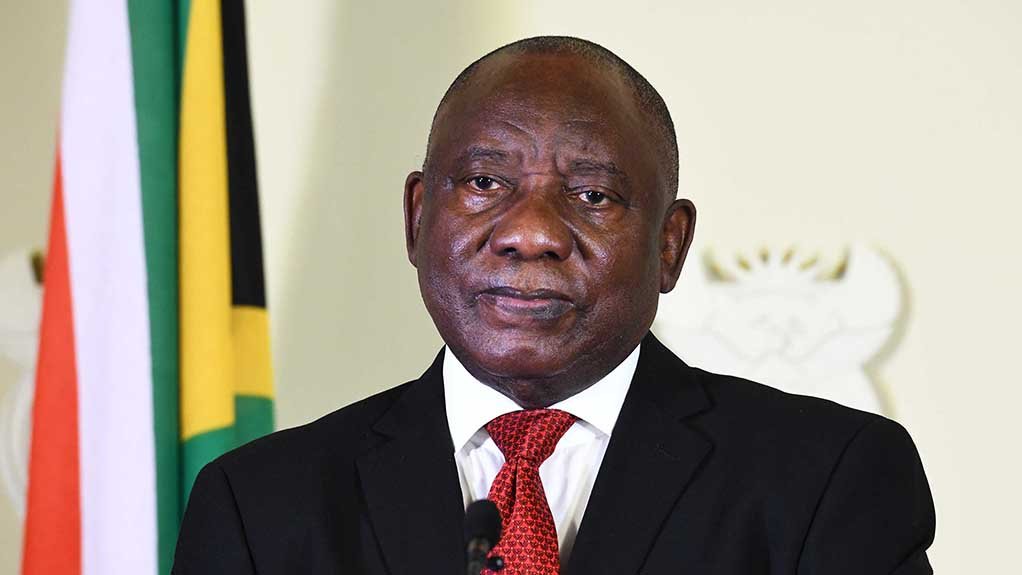President Cyril Ramaphosa will face his first motion of no confidence on 30 March.
His Cabinet will face a similar motion on the same day.
Both votes will be in the open, and this could delay the process as some opposition parties are unhappy about National Assembly Speaker Nosiviwe Mapisa-Nqakula's decision and could take further steps.
At the National Assembly Programming Committee's meeting on Thursday morning, Mapisa-Nqakula announced that both motions will be voted on and debated on 30 March. She said voting for both motions will be in the open.
Democratic Alliance (DA) chief whip Natasha Mazzone said an open vote would be "very concerning" to members who might not want to toe the party line.
She said an open vote would be tantamount to wasting time. She suggested that Mapisa-Nqakula take a legal opinion on the matter.
Mapisa-Nqakula said she had taken a legal opinion.
"I wouldn't come and preside over this meeting without a legal opinion," she said. "The environment in Parliament is not toxic at all."
She said South Africa had just come out of an election, and the Zondo Commission report will be presented to Parliament in June. She said it had been discussed openly already.
She said if these things could be done, there was no reason why there couldn't be an open vote.
She said the only issue the DA raised was that members of the executive shouldn't participate in the motion of no confidence in Cabinet.
"I have ruled members of the executive will participate in the debate and the vote," Mapisa-Nqakula said, adding that they were members of Parliament.
According to DA deputy chief whip Siviwe Gwarube, things could be legally sound but make no sense where accountability was concerned.
Mapisa-Nqakula said, "If you want to take the decision on review, you can do so."
She said the rules provided for voting in a hybrid system.
African National Congress (ANC) chief whip Pemmy Majodina said the rules allowed MPs to vote against their party.
"I don't understand the issue now," she said.
Mapisa-Nqakula said she had made her ruling, and parties were welcome to make formal submissions on the matter to her. She said she would also ask Parliament's legal services to provide copies of their advice to her to the parties.
Voting in the open in a virtual setting means that chief whips will inform the table how many of their MPs are present and whether or not they support the motion.
If an MP wants to vote differently from their party, it is then up to them to publicly say so. This is yet to happen.
In March last year, the contentious vote on Public Protector Busisiwe Mkhwebane's impeachment was done in the open.
ANC chairperson Gwede Mantashe instructed ANC MPs to support the DA motion. Some ANC MPs – believed to be aligned to the so-called radical economic transformation (RET) faction – were opposed to supporting this motion. No ANC MP voted against the motion or abstained, but a few ANC MPs were absent.
The African Transformation Movement (ATM) – who were not represented in Thursday's meeting – lodged its motion of no confidence in Ramaphosa in early 2020. It was scheduled to be heard by the end of that year, but was delayed as the ATM challenged then-speaker Thandi Modise's decision to reject a secret ballot for the vote on the motion.
Mapisa-Nqakula has already indicated that the vote on the motion will not be secret.
Last month, during the State of the Nation Address debate, DA leader John Steenhuisen announced that he had lodged a motion of no confidence in Cabinet. If this motion should pass, Ramaphosa would not be removed.
If the ATM's motions were to succeed, both Ramaphosa and his Cabinet would be removed.
The committee also heard that the DA's request for an urgent debate on Russia's invasion of Ukraine has been ceded and will be debated on 15 March.
EMAIL THIS ARTICLE SAVE THIS ARTICLE
To subscribe email subscriptions@creamermedia.co.za or click here
To advertise email advertising@creamermedia.co.za or click here











